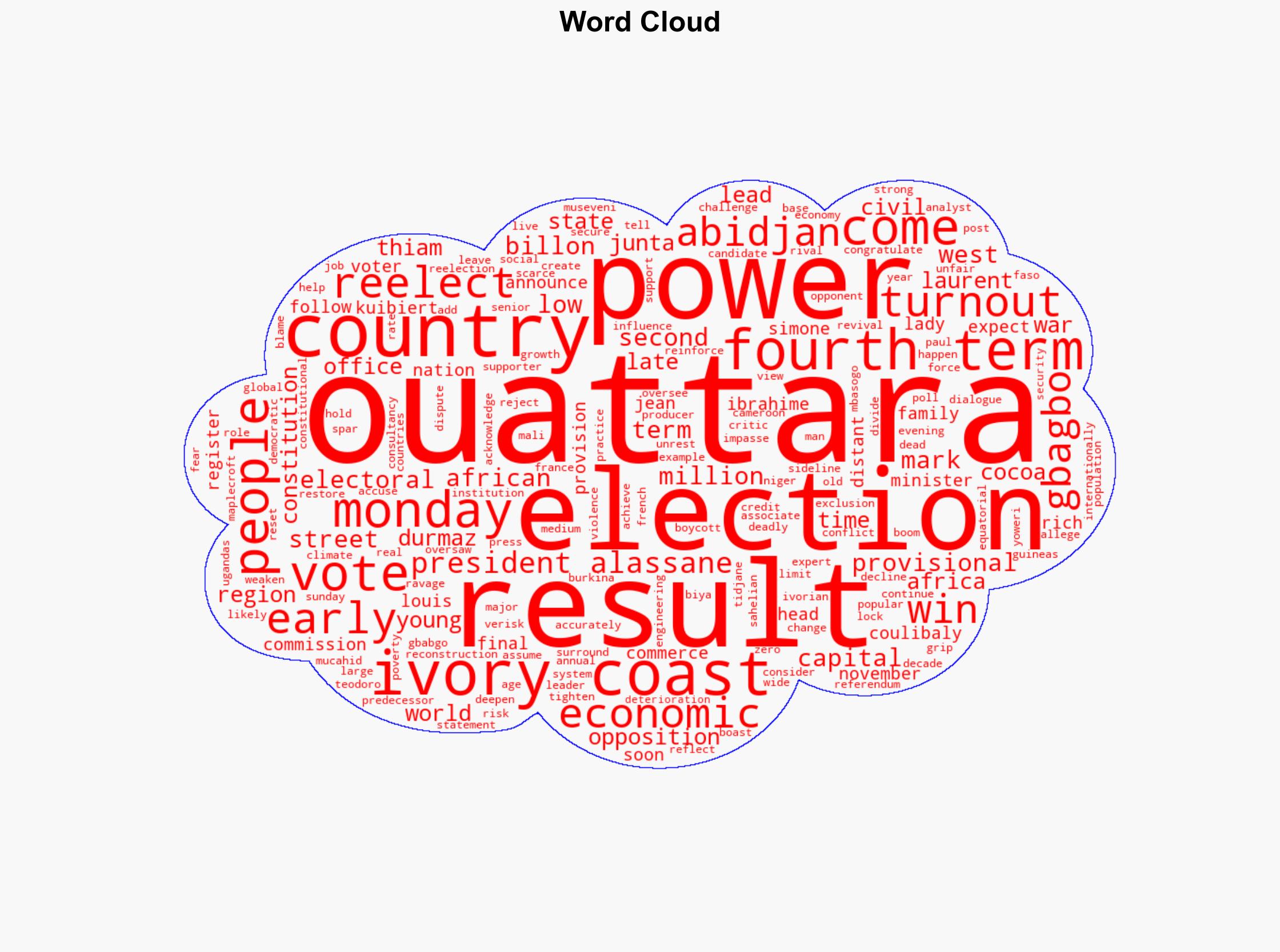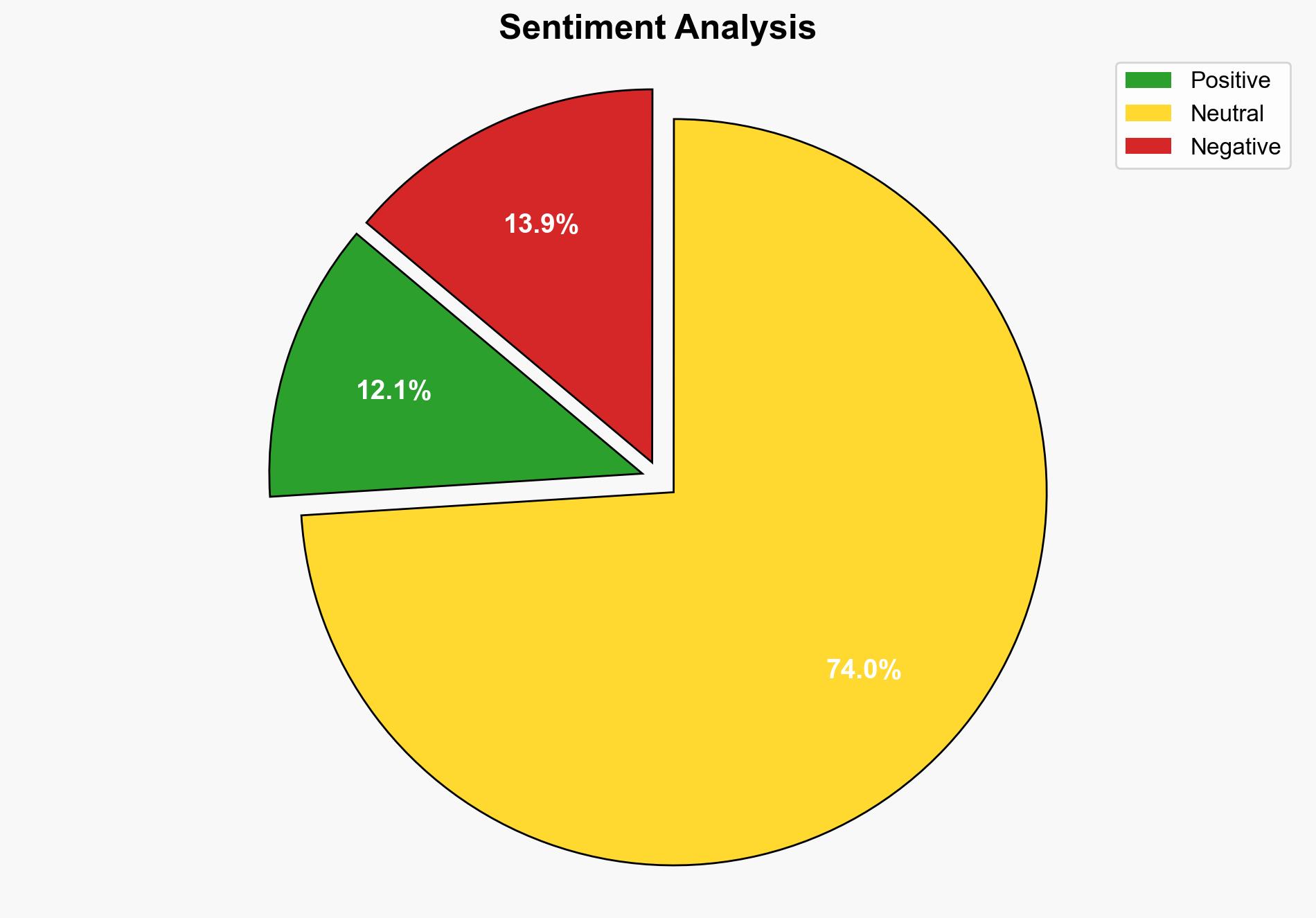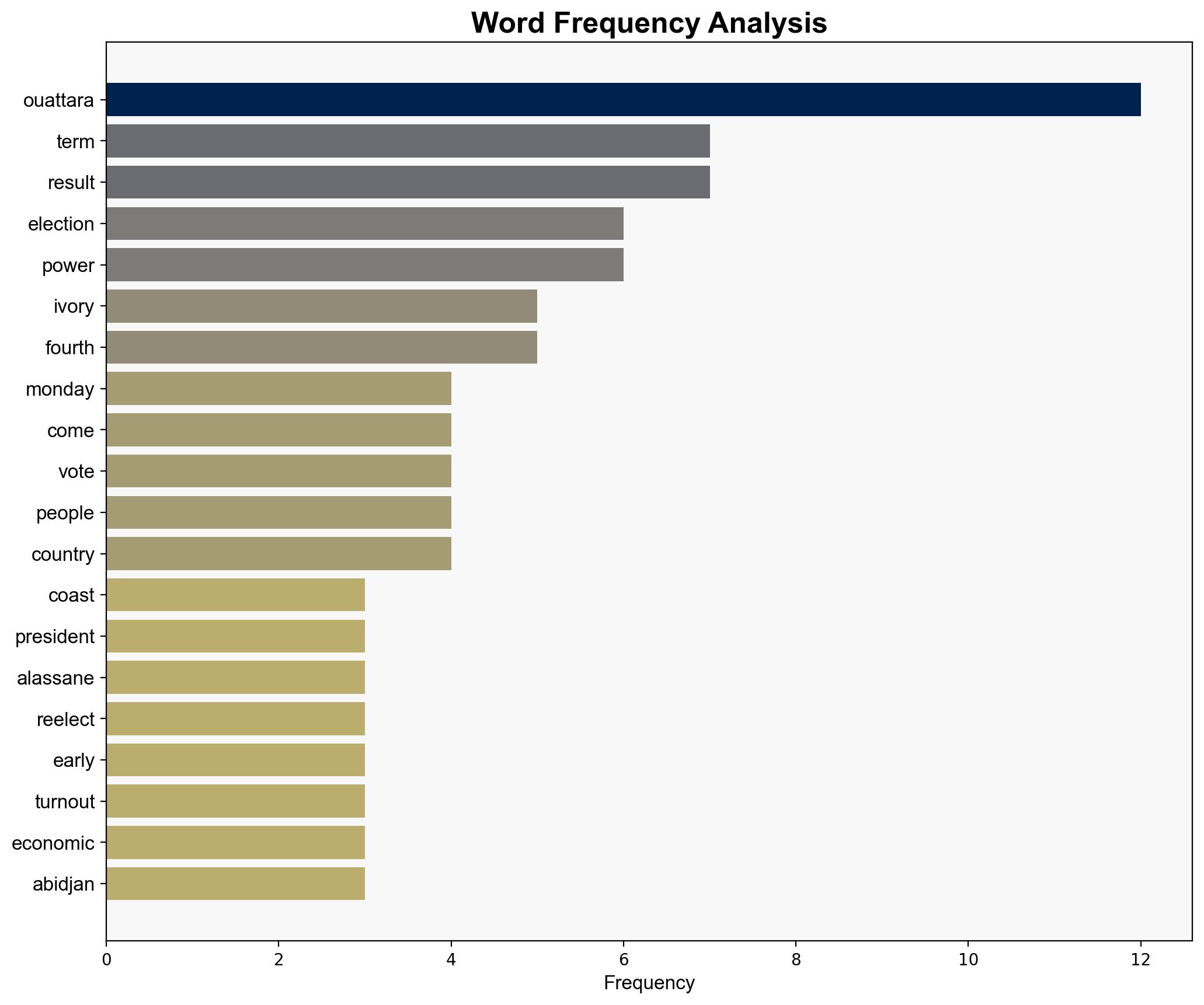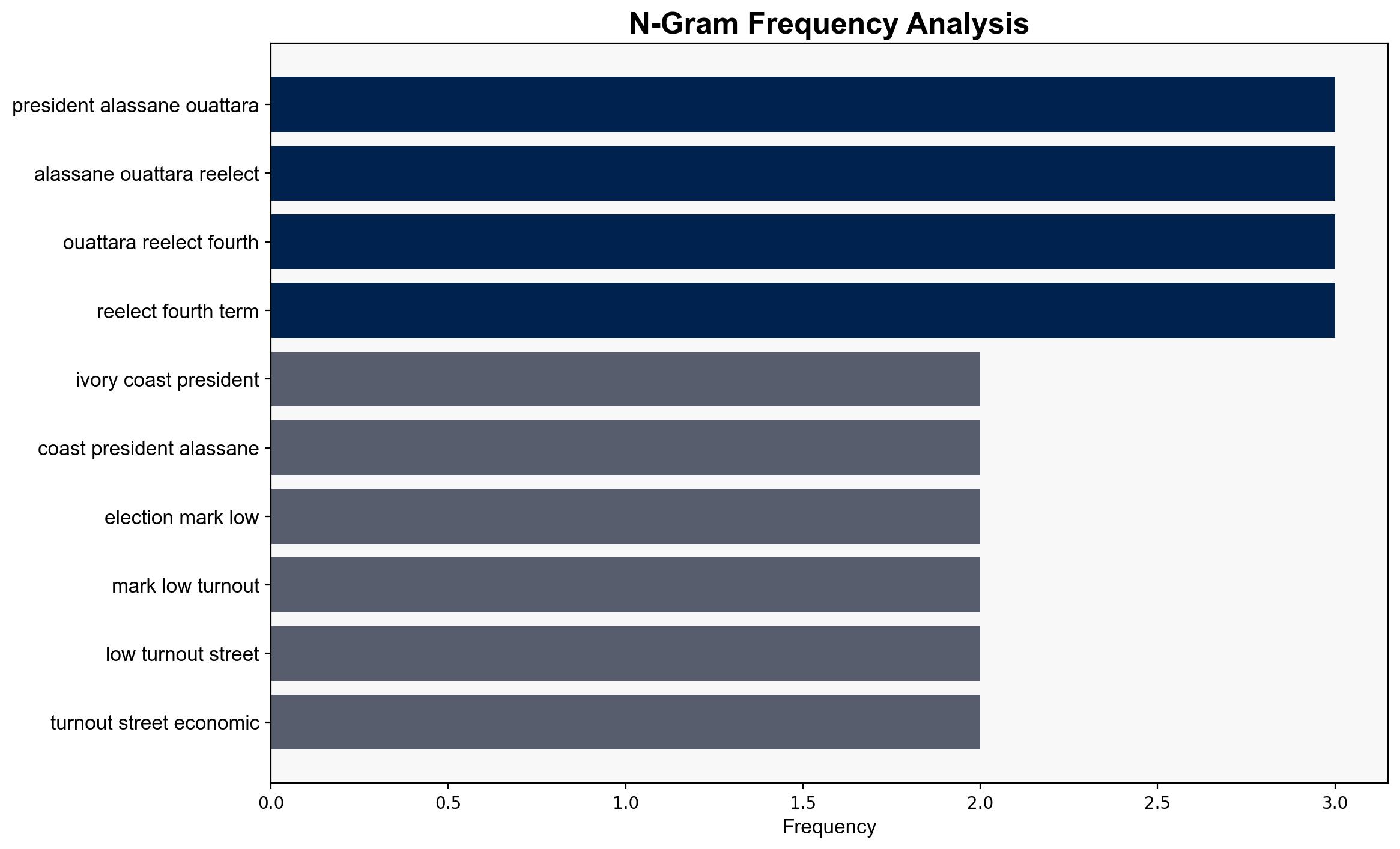Ivory Coast President Alassane Ouattara reelected to fourth term early results show – ABC News
Published on: 2025-10-28
Intelligence Report: Ivory Coast President Alassane Ouattara Reelected to Fourth Term Early Results Show – ABC News
1. BLUF (Bottom Line Up Front)
The reelection of Alassane Ouattara to a fourth term in Ivory Coast is marked by low voter turnout and allegations of an unfair electoral process. The most supported hypothesis suggests that Ouattara’s continued presidency may exacerbate political tensions and undermine democratic practices in the region. Confidence level: Moderate. Recommended action: Engage in diplomatic efforts to encourage political dialogue and reforms in Ivory Coast to prevent potential instability.
2. Competing Hypotheses
1. **Hypothesis A**: Ouattara’s reelection is a result of genuine popular support and effective governance, leading to economic growth and stability in Ivory Coast.
2. **Hypothesis B**: Ouattara’s reelection is primarily due to manipulation of the electoral process, exclusion of opposition candidates, and constitutional changes, which may lead to increased political unrest and democratic backsliding.
Using structured analytic techniques, Hypothesis B is better supported by evidence of low voter turnout, opposition claims of an unfair electoral system, and Ouattara’s history of constitutional amendments to extend his rule.
3. Key Assumptions and Red Flags
– **Assumptions**: Hypothesis A assumes that economic growth equates to political legitimacy. Hypothesis B assumes that exclusion of opposition candidates directly correlates with political instability.
– **Red Flags**: The low voter turnout and opposition claims of an unfair system raise concerns about the legitimacy of the election. The exclusion of major candidates suggests potential manipulation.
– **Blind Spots**: Lack of detailed information on public sentiment and the role of international actors in the election process.
4. Implications and Strategic Risks
Ouattara’s reelection could lead to increased political polarization and potential civil unrest, reminiscent of past conflicts in Ivory Coast. The situation may also influence neighboring countries, contributing to regional instability. Economically, while growth is reported, the exclusion of significant portions of the population from political processes could undermine long-term stability.
5. Recommendations and Outlook
- Encourage international bodies to facilitate dialogue between Ouattara and opposition leaders to address electoral grievances and promote inclusive governance.
- Monitor potential flashpoints for unrest, particularly in urban centers like Abidjan.
- Scenario Projections:
- Best: Successful political reforms and dialogue lead to increased stability and economic growth.
- Worst: Political unrest escalates into violence, disrupting economic activities and regional stability.
- Most Likely: Continued political tension with intermittent unrest, but no significant escalation.
6. Key Individuals and Entities
– Alassane Ouattara
– Jean Louis Billon
– Simone Gbagbo
– Tidjane Thiam
– Laurent Gbagbo
– Ibrahime Kuibiert Coulibaly
7. Thematic Tags
national security threats, political stability, electoral integrity, regional focus





